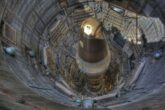February 29, 2024
Networked deterrence in a multipolar Indo-Pacific
The era of US unipolarity in Asia is over. China’s rapid military and nuclear modernisation, economic power, and revisionist tendencies have narrowed the window for Beijing to tip the local balance of power in East Asia. Even if China cannot yet command the same kind of power and influence as the United States at the global level, it is well on the path to doing so. Russia, though presently weakened because it invaded Ukraine, remains a nuclear power. More than one major power exists, resulting in a more multipolar system — globally and regionally.
The United States finds itself in an unprecedented position of needing to deter large-scale conventional aggression from these two major powers while simultaneously managing persistent threats such as North Korea, Iran, and violent extremist organisations around the globe. This challenge comes at a time when the United States lacks the requisite capacity, capability and readiness to meet this challenge and fulfil its extended deterrence commitments. These shortcomings have spurred efforts to reorganise the US military for great power competition and conflict, particularly with China.
For integrated deterrence to succeed in the Indo-Pacific, the United States needs to bolster both deterrence by denial and resilience by working with allies and partners.
Preparing for great power competition and conflict has led the Biden administration to emphasise working with allies and partners to help make up for shortfalls in national power and to better deter common threats, particularly in the Indo-Pacific. While America has doubled down on its alliances and partnerships, these nations have also reacted to shifts in the regional balance of power and increasing multipolarity. In the Indo-Pacific, states have responded to the twin developments of China’s rise and changes in US military strategy by seeking greater agency in the security domain, modernising their alliances with Washington and buttressing their own military capabilities. In so doing, they have altered regional security architecture — but not necessarily in a way that is disadvantageous to US interests.
This paper argues that the end of US unipolarity has led to a new regional security architecture in the Indo-Pacific, but this architecture is not incongruous with US interests and objectives as set out in the 2022 National Defense Strategy. China’s actions have galvanised like-minded allies and partners’ determination to build independent capabilities and act both with and without the United States. Insecurity has led states to externally balance by deepening security partnerships amongst themselves and reinforcing collective deterrence and defence. This overlapping network of security relationships has enabled improved capability development, defence industrial base integration, and posture enhancements that aim to enhance the strategy of deterrence by denial among the US and its allies and partners and to improve the resilience of the prevailing security architecture in the Indo-Pacific.
Read the full article from The United States Studies Centre.
More from CNAS
-
The Astronomical Cost of Defeating ‘Any Foreign Aerial Attack’
Building Trump’s proposed missile and air defense system would be an enormous task — and the president’s spending target is likely just a fraction of the final price. CNAS adj...
By Becca Wasser
-
The U.S. Military Needs to Relearn Nuclear Signaling
This deterioration matters because beyond the quantity and quality of the United States’ nuclear forces, nuclear deterrence will rest on the country’s ability to effectively s...
By Philip Sheers
-
From Production Lines to Front Lines
Executive Summary The U.S. defense industrial base (DIB) is struggling to meet the demands of the current strategic environment—let alone prepare for a potential conflict agai...
By Becca Wasser & Philip Sheers
-
More than the Sum of its Parts: Developing a Coordinated U.S.-Australian Response to Potential Chinese Aggression
If China engaged in a war of aggression, the United States, Australia, and other nations would not have much time to develop a coordinated response....
By Stacie Pettyjohn




